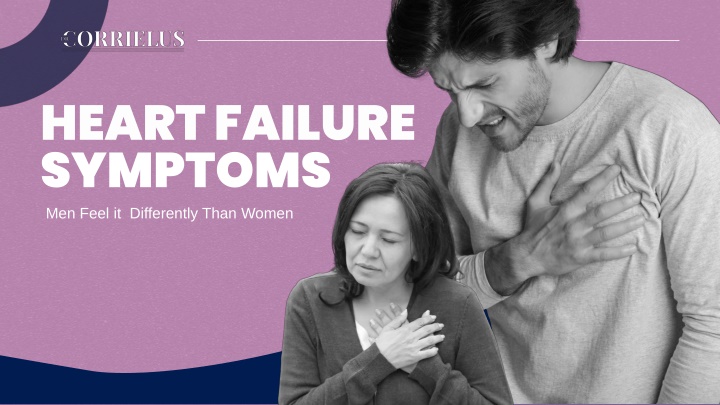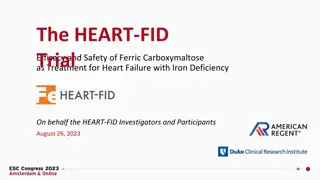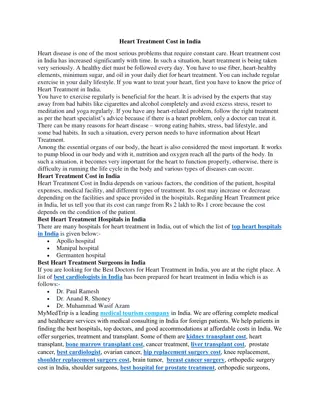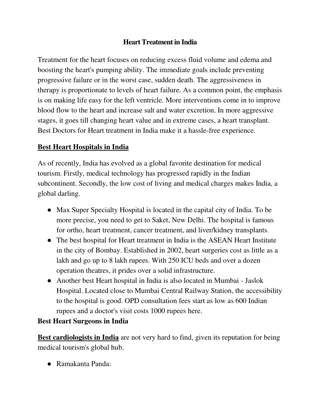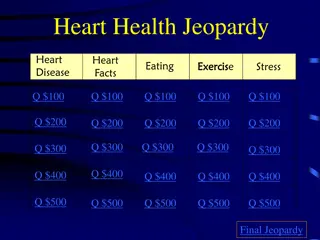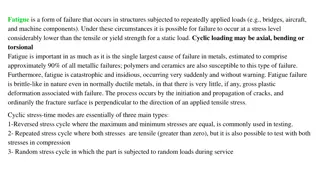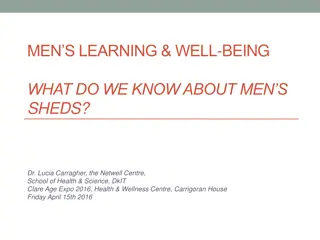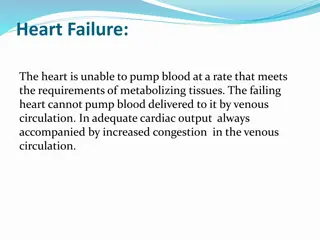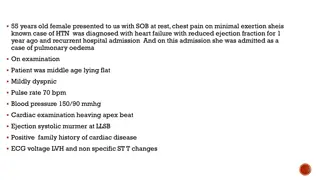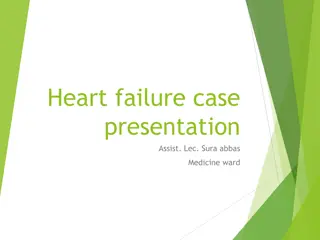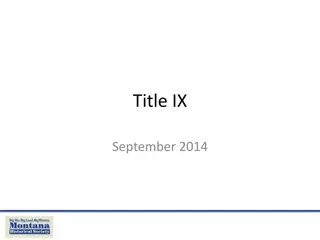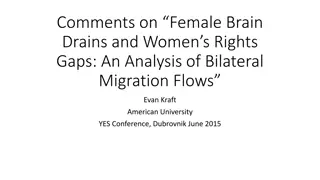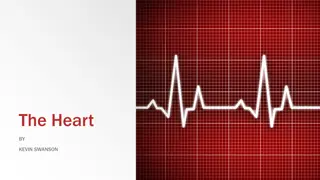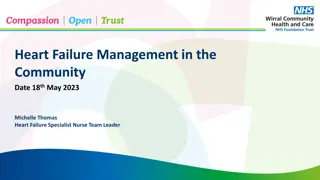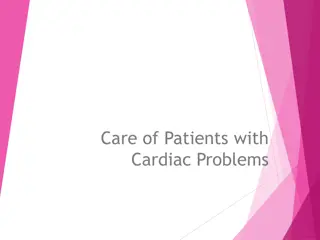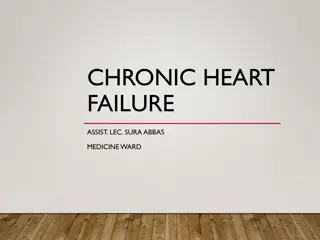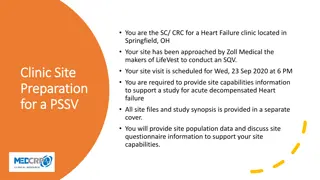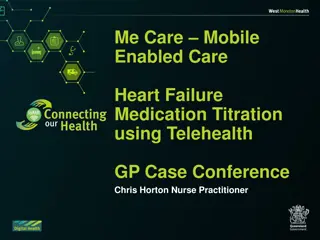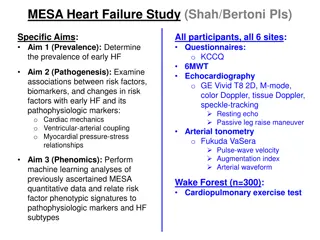Heart Failure Symptoms: Men Feel it Differently Than Women
nFor MennMen tend to feel severe chest pain or discomfort.nThey may feel lightheaded or dizzy when standing up.nMen are more likely to have heart attacks as a first sign of heart failure.nThey may notice swelling in the feet or ankles.nMen tend
Download Presentation

Please find below an Image/Link to download the presentation.
The content on the website is provided AS IS for your information and personal use only. It may not be sold, licensed, or shared on other websites without obtaining consent from the author.If you encounter any issues during the download, it is possible that the publisher has removed the file from their server.
You are allowed to download the files provided on this website for personal or commercial use, subject to the condition that they are used lawfully. All files are the property of their respective owners.
The content on the website is provided AS IS for your information and personal use only. It may not be sold, licensed, or shared on other websites without obtaining consent from the author.
E N D
Presentation Transcript
HEART FAILURE SYMPTOMS Men Feel it Differently Than Women
FOR MEN Men tend to feel severe chest pain or discomfort. They may feel lightheaded or dizzy when standing up. Men likely to have heart attacks as a first sign of heart failure. They may notice swelling in the feet or ankles. seek medical help earlier when they experience heart pain and discomfort
FOR WOMEN Women are more likely to experience fatigue and unusual tiredness. They might have trouble breathing or feel short of breath more than men. Pain may be felt in areas like the back, neck, or jaw rather than the chest. Women are more likely to feel nausea or indigestion during a heart event. They often delay seeking treatment, thinking the symptoms are something.
THE HIDDEN DANGERS OF CARDIOVASCULAR RISK IN MEN AND WOMEN Both men and women face cardiovascular risk, but it can show up in different ways. Certain factors can raise the risk of developing heart ailments, and some risks affect one gender more than the other. COMMON CARDIOVASCULAR RISK FACTORS High blood pressure: Both men and women are at risk, but women s risk increases after menopause. Obesity: Being overweight is a big risk for both men and women, but it affects women more when combined with other health problems. Lack of physical activity: Exercise is important for heart health. A sedentary lifestyle increases cardiovascular risk. Unhealthy diet: Eating foods high in salt, fat, and sugar can affect heart health for both genders. Stress: High levels of stress can contribute to heart disease in both men and women, but it can affect women more deeply.
THANK YOU FOR WATCHING www.drcorrielus.com info@corrieluscardiology.com
